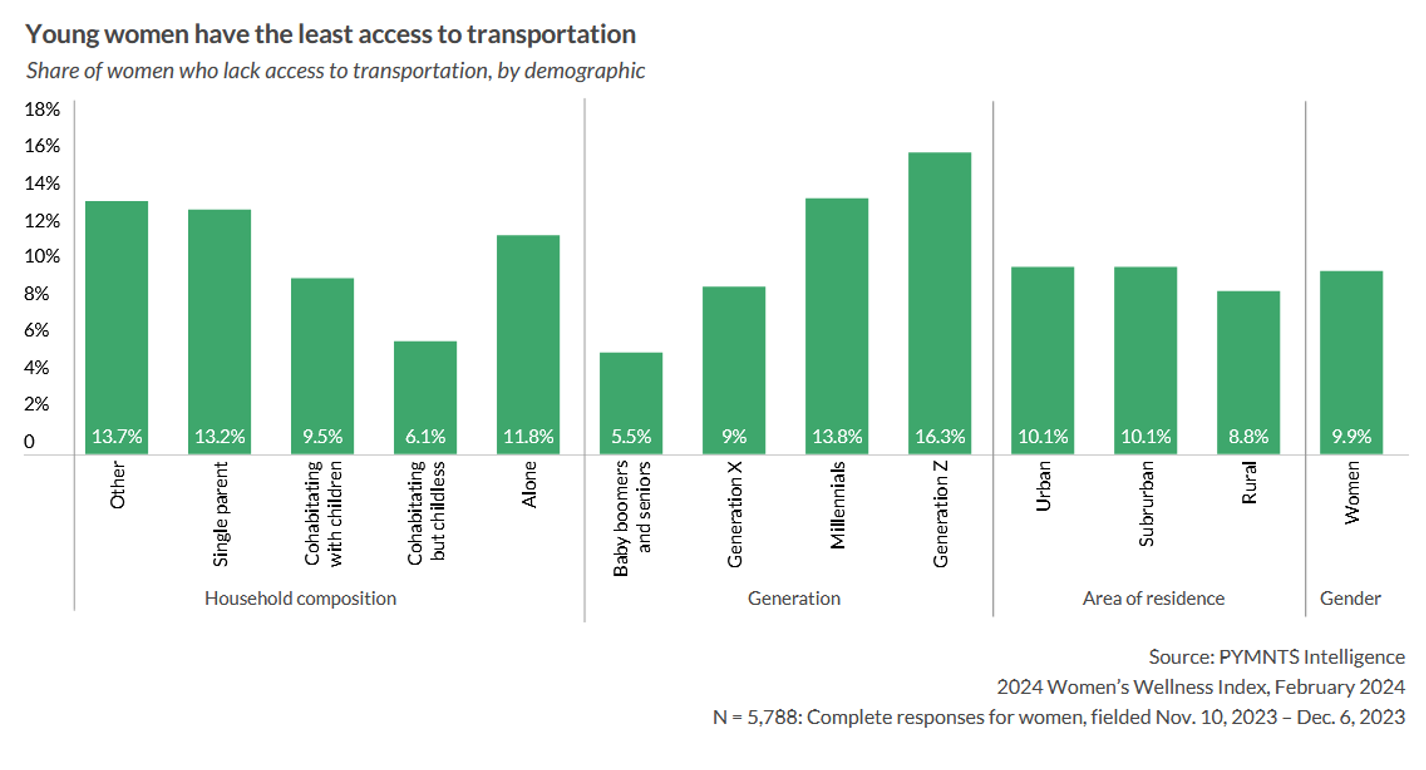Women Who Lack Transportation Are 17% Less Likely to Get Medical Care

When it comes to getting an accurate reading on your health, nothing can replace an in-person meeting with a healthcare professional. However, 10% of U.S. women are unable to make such appointments because they lack access to the transportation needed to get there.
A multitude of health-related issues can cascade from there. Women who lack reliable transportation are 17% less likely to get the preventive medical care they need. Compared to those with access to transportation, they are also 78% more likely to postpone medical care until a problem arises and are nearly twice as likely to neglect dental care until a problem occurs.
These are just some of the findings included in the recent installment of PYMNTS Intelligence’s “2024 Women’s Wellness Index,” “Women’s Life Stage Priorities in Health and Wellness,” created in collaboration with CareCredit and based on surveys with more than 10,000 U.S. consumers.
These recent findings should not be interpreted to mean U.S. women are neglecting their health. On the contrary, as we revealed in the “2024 Women’s Wellness Index,” women are 11% more likely than men to research aspects of their own health and wellness and 19% more likely to understand how to identify the best medical and wellness providers. In fact, single women living alone demonstrated some of the strongest health outcomes in that report.
But that report also found that if a significant other or children enter the picture, women tend prioritize the healthcare needs of those others over their own. For instance, 20% of single moms put their children’s healthcare needs above their own — a decision that can take a toll on a woman’s health over her lifetime.
Although data in the more recent study shows women are more likely to have consistent transportation as they age, that isn’t the case for younger women. Among Gen Z women, the youngest segment in our study, 16% lack access to transportation as do 14% of millennial women.
Women who struggle with having transportation score 10% lower than the average woman on PYMNTS Intelligence’s health index, signifying worse health outcomes. The ripple effects can affect the quality of mothers’ health as well as their children’s.
Although telemedicine is more common these days, many healthcare-related appointments — especially dental appointments — require in-person visits. If a woman cannot transport herself to an in-person medical appointment, she goes without care, which is a reality for one in 10 women, which limits their ability to be proactive about their health and can lead to worse health outcomes over time.
There are potential solutions: rideshare programs, medical transportation services, home visits by medical and wellness practitioners and in-home health lab kits could all help bridge the gap in women’s health. Increasing the range of appointment types and services that doctors offer remotely would also help. Solutions such as these may sound somewhat unorthodox, but they could help women get the care they need. In addition, access to home lab tests could help women participate in regular screening, gaining the benefits without the added stress of finding a way to visit a medical provider.
